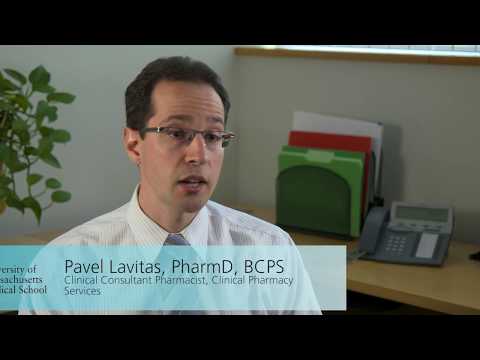Looking closely at cases where treatment failed as well as where it has worked is crucial for running a successful Hepatitis C medication management program, notes Pavel Lavitas, PharmD, BCPS, of UMass Medical School.
The “vast majority” of patients are cured of the Hepatitis C infection after being treated with a new, and more powerful class of drugs developed over the past few years, says Lavitas, a clinical consultant pharmacist in Clinical Pharmacy Services.
But there are still a “fraction” of cases where patients aren’t cured biologically of the infection, despite treatment with the new drugs.
It is then crucial for the pharmacy team running the medication management program to dig into the possible reasons for the treatment failures. “We believe it’s important to find the reasons why,” Lavitas says.
One potential reason, he notes, is that the patient stopped taking the medication. The treatment regimen for HCV can be complicated and intensive, with the danger that some patients will simply stop taking their pills. That can lead to both serious health consequences and higher medical costs, with treatment running into the tens of thousands of dollar per patient with the latest drugs.
Another potential factor, though, could be the specific medical characteristics of the patient or the virus, according to Lavitas.
The pharmacy team then passes along that data to the health plan, who can use the information to improve outcomes. “They may create additional management strategies or allocate different resources to ensure the member is successful upon retreatment,” Lavitas says.
UMass Medical School has both developed and put into action a number of Hepatitis C medication management programs for state Medicaid programs, health plans and pharmacy benefit management programs.


